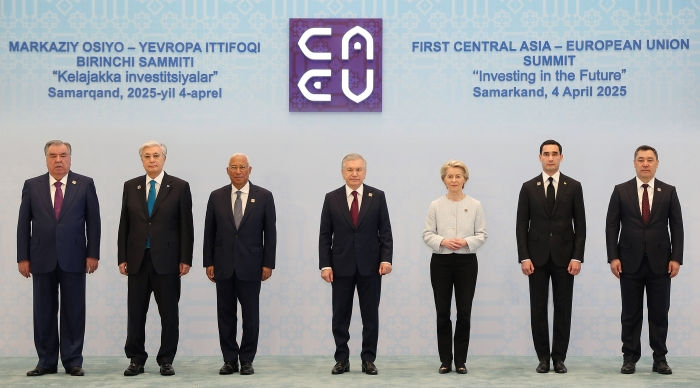Why Japarov is NOT "Kyrgyz Navalny"
- Rashid
- Jan 31, 2021
- 4 min read
Updated: Feb 17, 2024
In an attempt to explain the phenomenon of a fulminant rise to power of a former convict and now President of Kyrgyzstan Sadyr Japarov, scholars have been relying on analogies such as "Kyrgyz Trump" or even "Kyrgyz Navalny". While some points of departure in the Trump comparison may partially be in tune with reality (propagating nationalism, while slamming media and liberal values), the Navalny analogy is certainly a stretch. If anything, like "the Trumps" and "the Orbans" and the "Wilderses" of this world, Japarov is a great student of populism. No, he actually qualifies to be a teacher in this domain.
Dubnov's misleading analogy
In his recent commentary to Echo of Moscow, author, international journalist and Central Asia expert, Arkady Dubnov, provided points of comparison for Japarov and Navalny. Allegedly, such analogies are currently heard in the streets of Kyrgyzstan (?).
"Both [Japarov and Navalny] started their careers in the anti-corruption field, Japarov in 2009-2010 even headed the State Agency for the Prevention of Corruption." - Dubnov writes.
Yes, except Navalny does not work for a state agency... Anti-Corruption Foundation (FBK) is a non-profit organisation declared a foreign agent in Russia. FBK is in confrontation with the state.
The idea of a State Agency for the Prevention of Corruption in most post-Soviet countries is like an idea of a prison where inmates are asked to perform self-guarding.
I will combine the following four points as they are essentially about the same event - Navalny's recent experience of appearing in Germany, deciding to return to Russia and getting immediately arrested upon arrival.
"Both were forced to leave their country, Japarov in 2013, fearing criminal prosecution, later recognized as falsified by part of the circle of the former President Almazbek Atambayev, who is now in prison.
Both announced a voluntary return to their homeland to continue political activities, Japarov did this in January 2017 and returned in March of the same year.
Both were detained right after their return right at the border, Japarov - at the Kazakh-Kyrgyz border.
Both were imprisoned, Japarov was sentenced to 11.5 years in a maximum-security colony." - Dubnov writes.
Except, Navalny's flight was anything but exile. Comatose, he was flown out in a box for a life-saving medical treatment, unable to make any conscious decisions himself, and returning to Russia as soon as it was physically possible.
If anything, this comparison is a compliment to Japarov and a disgrace to Navalny. I will leave it at that.
This astonishing list of analogies can go on in eternity.
Both are males.
Both are married.
Both have last names that consist of 7 letters when spelt in English...
Our innate desire for simplification leads to the supply and demand of dangerously misleading analogies, lacking any context and substance.
Populism student or master, rather
In their work "Cultural Backlash: Trump, Brexit and Authoritarian Populism", Pippa Norris and Ronald Inglehart propose a definition for populism. According to the authors, there are two and no more than two components to it:
1) anti-establishment rhetoric
2) power to the people rhetoric
Of course, within this definition, quite a few politicians can be referred to as populist. This fact, however, certainly does not make them all blendable. Actually, a great area for a comparative study between Japarov and Navalny would be their campaigns, rhetorics, promoted values and typology of supporters who identify with these values. Without such nuances, the argument risks to be generic at best and false/misleading at worst.
Norris and Inglehart introduce the concept of a "cultural backlash" - an idea that value shifts with the focus on feminism, multiculturalism and environmentalism led to resentment by some groups in developed countries, making far-right populist rhetoric appealing to them. Studies on cultural backlash in Russia and Central Asia can greatly enrich this discussion.
An excellent account of Japarov's coming to power as Kyrgyzstan's "Native Son" is offered by Aksana Ismailbekova here. Ismailbekova provides exactly the nuance that current discussions miss, thus becoming misleading...
Populism by definition does not need to be doomed for authoritarianism, but it can be, and when it is - dangerous things happen. Using the wave of a power vacuum that followed the October events, Japarov hijacked the attempted revolution, stepping in as a political martyr - an outsider who challenges the establishment. Through his vast off- and online campaign strategies, Japarov positioned himself as a Hobbesian Leviathan, gaining absolute power in exchange for the guarantee of peace and prosperity for the masses. Japarov's informal style in clothing (albeit expensive) and even the very name as supporters simply call him "Sadyr", won him the reputation of a homeboy who deserves to represent the people in the highest post. Presidency became the highest post in the country after a referendum (combined with the presidential election) which reverted Kyrgyzstan's parliamentary governance system into a presidential one. This is where Japarov demonstrated mastery over the second definitional component of populism - "power to the people". All the reforms (albeit benefiting select few) have been framed as the will of the masses, of course.
Building his rhetoric on the idea of restoring a lost paradise in a national-patriotic key, with the focus on religion and morals, Japarov resembles other autocratic and patriarchal leaders in the region, but by no means Navalny.
Apples and oranges?
The main point here is that we need nuances. While comparative studies are a must and analogies help us understand and learn, when context-specific nuances are continuously neglected, we are risking to lose all substance in the argument.
At some point, apples turn into oranges and vice versa because hey, they both grow on trees, right!?





Comments